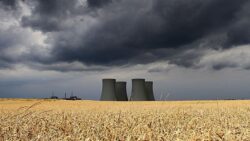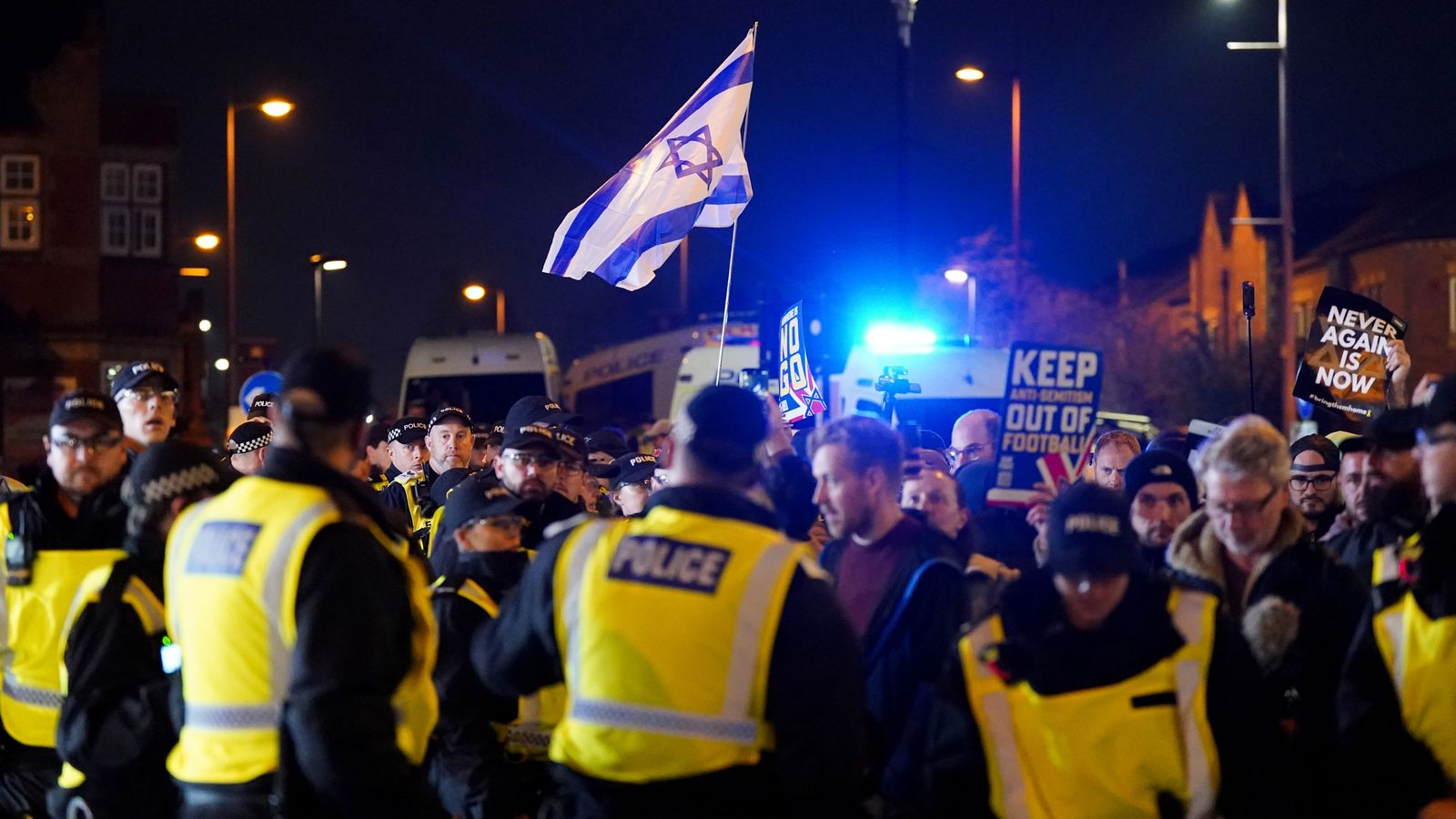When Ukrainian President Volodymr Zelenskyy of Ukraine landed in Brussels for a highly-anticipated face-to-face address to the European Union institutions, he came with three basic requests: fast-tracked EU accession, Western fighter jets and a fresh round of hard-hitting sanctions on Russia.
On the first two demands, the response from EU leaders was rather timid, if not outright evasive.
On the third point, the sanctions, the outcome was somehow more promising.
European Commission President Ursula von der Leyen vowed to slap the Kremlin with a 10th raft of penalties to mark the one-year anniversary of the war. The proposal, she said, would target EUR10 billion worth of exports, blacklist propagandists and “further starve Russia’s military machine.”
And yet, this is not exactly what Zelenskyy wanted to hear.
“I thank you for the sanctions packages that have already come into force. But have they sufficiently limited Russia’s aggressive potential? This is a path that needs to be completed,” the Ukrainian told the 27 heads of state and government.
“Think about it: Russia has created the threat of a radiation catastrophe in Europe! And the Russian nuclear industry is still free from global sanctions. Is this normal? I do not think so.”
Subheader
For the past weeks, Ukrainian officials have ratcheted up their efforts to convince Western allies to take decisive action against Russia’s nuclear sector and, in particular, against Rosatom, the powerful state monopoly that controls civilian nuclear energy and the country’s arsenal of nuclear weapons.
Founded in 2007, Rosatom is one of the world’s leading suppliers of enriched uranium and nuclear reactors, with 34 construction projects in countries such as India, China and Turkey. Its steady economic rise has been directly linked to Vladimir Putin’s increasingly assertive geopolitical behaviour.
The company is the current operator of the occupied Zaporizhzhia nuclear plant, in eastern Ukraine, which has been the scene of fierce fighting and international intervention to prevent a fatal disaster.
Russia’s seizure of the plant has fuelled calls for Rosatom managers to be added to the EU’s long blacklist, but so far no high-profile individual associated with the corporation has been included.
The absence is due to a lack of political consensus and insufficient ties between Rosatom and the systematic attempts to undermine Ukraine’s territorial integrity and independence, said a European Commission spokesperson.
“There is only one factor when it comes to agreeing on EU sanctions: unanimity,” the spokesperson told Euronews, referring to the requirement necessary to approve penalties that quite often leads to prolongued discussions and watered-down results.
“We propose things that have a chance to be adopted. If a proposal is a no-go from the beginning, then you don’t move forward. It’s not politically wise.”
‘Tightening the screws’
Although Zelenskyy’s much-publicised visit put it back on the table, the idea of sanctioning Russia’s nuclear sector is far from novel.
Back in September, when Brussels was preparing the seventh round of sanctions, a group of five countries – Poland, Estonia, Latvia, Lithuania and Ireland – openly flouted the possibility in a joint letter, suggesting a “ban on cooperating with Russia on nuclear energy.”
The proposal did not go anywhere then and is unlikely to pick up steam now. In fact, the transport of nuclear fuel remains explicitly exempted from the EU’s wide-ranging decision to close all its ports to Russia’s entire merchant flee.
“If this will not be in the 10th (package), this should be in the upcoming ones. We will definitely push this now and later,” a diplomat from the five-strong faction told Euronews, speaking on condition of anonymity due to the sensitivity of the issue.
The idea “has more traction than six months ago. But it’s nowhere enough.”
Maria Shagina, a senior fellow at the International Institute for Strategic Studies (IISS) whose work focuses on economic sanctions, believes targeting Russia’s nuclear industry would be one of “the strongest measures” the bloc could take at this moment, as economic options and political imagination begin to run out after nine complex rafts of penalties.
“Sanctioning Rosatom will not have a huge economic impact on the Russian economy: the revenue amounts to about $1 billion a year (across the EU),” Shagina told Euronews. “However, it’s about tightening the screws on Putin’s regime.”
Shagina challenged the assumption that Rosatom, a state-owned company, is totally detached from the war in Ukraine. In the face of international isolation, the Kremlin has doubled down on its energy-exporting business to buttress its flagging economy and bankroll the expensive invasion.
“Rosatom positions itself as a civil nuclear company, but the distinction between military and civilian purposes are blurred,” Shagina said. “Rosatom is also poised to spur the country’s chip development and production, which will only add to the pressure to target it.”
While the bloc’s reliance on Russian oil and gas has been extensively documented, its relation with Russia’s nuclear sector has flown under the radar, resurfacing only sporadically.
One of the reasons is self-evident: the value of imports of Russian oil and gas dwarfs that of uranium.
In 2021, before the war started, the EU paid the sum of EUR71 billion for Russian crude oil and refined petroleum products – and just over EUR333 million for Russian Uranium-235, an enriched variety that is used as fuel to power nuclear plants, according to numbers provided by Eurostat.
That same year, Russia was the bloc’s third largest uranium supplier, with a 19.7% market share, behind Niger (24.3%) and Kazakhstan (23%), a former Soviet republic that maintains close ties with the Kremlin.
“There is no resource dependence on Russian natural uranium,” Mycle Schneider, the coordinator of the World Nuclear Industry Status Report, told Euronews.
Instead, Schenider noted, the reliance lies somewhere else.
‘Out of the question’
As of today, five EU member states operate 19 Russian-made nuclear reactors: six in the Czech Republic, five in Slovakia, four in Hungary, two in Finland and two in Bulgaria.
Out of these, 15 belong to the VVER-440 model while the other four are VVER-1000 designs. Ukraine also operates several reactors, including in Zaporizhzhia, of both types.
As the VVER series is designed and developed by OKB Gidropress, a Rosatom-controlled subsidiary, the state company is the only “manufacturer in the world” that can service the fuel assemblies in these plants, Schneider explained.
Fuel assemblies, also known as fuel bundles, refer to the structured group of long rods that contain uranium pellets and are placed inside the core of each nuclear reactor. Maintaining these assemblies is an indispensable requirement to keep nuclear plants safe and functional.
Although two Western companies, Westinghouse (United States) and Framatome (France), have tried to replace Russia as the supplier for VVER fuel assemblies, their work has focused mainly on the VVER-1000 type and has not progressed fast enough to mitigate the entrenched reliance.
“VVER fuel remains a high dependency area likely for years to come,” Schneider said. “The future remains particularly uncertain for the operators of VVER-440s.”
A similar concern was raised in last year’s annual report by the Euratom Supply Agency (ESA), which urged countries to diversify providers to avert “supply vulnerabilities.”
“Little progress was made in diversifying the supply of VVER-440 fuel,” the report concluded.
Westinghouse and Framatome did not immediately reply to a Euronews request for comment.
Weighing heavily on the debate is the fact that in the five countries where Russian-made reactors are still active, nuclear power represents a considerable share of electricity generation, ranging from 32.8% in Finland to 52.3% in Slovakia, according to the World Nuclear Industry Status Report.
Even if Finland made a notable attempt to castigate Russia for its invasion by cancelling a contract with Rosatom that was supposed to build a nuclear plant on the Hanhikivi peninsula, the overall trend that links this group of EU countries with Moscow appears destined to live on.
Slovakia’s Mochovce-3 reactor, part of the VVER series, came online earlier this month, further deepening the country’s links with nuclear energy. Last year, Hungary issued construction permits to expand its Paks nuclear power plant with two reactors of the latest VVER-1200 type, a move that would bring the total of Russian-made reactors inside the country to six.
Unsurprisingly, Budapest has warned it would not hesitate to use its veto power to derail any EU bid to target Russia’s nuclear sector.
“We will not allow the plan to include nuclear energy into the sanctions to be implemented,” Hungarian Prime Minister Viktor Orb?n said as recently as January. “This is out of the question.”
The adamant opposition has not gone unnoticed in Brussels.
“One of the principles that has been followed since February 2022 in terms of sanctions is that it penalises Russia more than us,” said a senior diplomat from a Western country.
“And the (European) Commission, until now, has always considered that on nuclear issues, it would be the opposite.”





